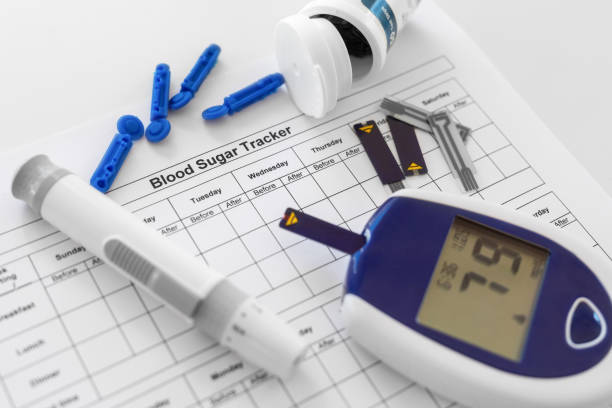Diabetes affects millions of people worldwide, requiring consistent management through lifestyle changes and medications. With various diabetes medications available, it can be overwhelming to determine which one is right for you. Insulin therapy remains essential for many, and sources like Canadian Insulin make it easier to access affordable, high-quality insulin. But insulin isn’t the only treatment—several diabetes medicine options exist, each working differently to control blood sugar levels.
Understanding how these medications work can help individuals make informed decisions about their treatment plans. This guide covers the most common options, their benefits, and who might need them.
How Diabetes Medications Work
Different diabetes medications help control blood sugar in unique ways. Some improve insulin sensitivity, others boost insulin production, and some prevent excess sugar absorption. Recognizing these mechanisms can help individuals and healthcare providers choose the most effective treatment.
Insulin Therapy
Insulin is vital for people with type 1 diabetes and is often prescribed for people with advanced type 2 diabetes. It helps regulate blood sugar by supplementing the insulin the body cannot produce or use effectively. Various types of insulin exist, including rapid-acting, long-acting, and mixed formulations.
Metformin
Metformin is a first-line diabetes medicine for type 2 diabetes. It decreases glucose production within the liver and enhances insulin sensitivity, making it simpler for cells to use blood sugar. This medication is widely prescribed because it effectively controls blood sugar without increasing the risk of low blood sugar (hypoglycemia).
GLP-1 Receptor Agonists
These injectable medications help the pancreas release insulin when needed and slow digestion, reducing post-meal blood sugar spikes. They can also promote weight loss, making them beneficial for individuals affected by both obesity and diabetes.
SGLT2 Inhibitors
SGLT2 inhibitors function by helping the kidneys remove excess glucose through urine. These drugs are particularly useful for people with type 2 diabetes who have heart or kidney conditions, as they provide cardiovascular benefits in addition to blood sugar control.
DPP-4 Inhibitors
DPP-4 inhibitors inhibit the breakdown of incretin hormones, which help stimulate insulin production and blood sugar levels. They are often used alongside other diabetes medicines to enhance treatment effectiveness.
Sulfonylureas
Sulfonylureas encourage the pancreas to release more insulin. While effective, they can sometimes cause weight gain and an increased likelihood of low blood sugar, making careful monitoring essential.
Who Needs Diabetes Medication?
Not everyone with diabetes requires the same treatment. The need for diabetes drugs depends on several factors, including disease progression, lifestyle habits, and overall health.
- Type 1 Diabetes Patients: Insulin is necessary for survival, as the body does not produce any.
- Type 2 Diabetes Patients: Some people manage their condition with diet and exercise alone, but many require oral medications or insulin to maintain stable blood sugar levels.
- Pregnant Women with Gestational Diabetes: If lifestyle changes don’t keep blood sugar levels in check, medication may be necessary for the health of both mother and baby.
- People at Risk of Diabetes Complications: Individuals with conditions like heart disease, kidney disease, or nerve damage may require specific medicine for diabetes to prevent further health risks.
Regular monitoring and modifications to treatment are essential to managing diabetes effectively. Along with medication, lifestyle adjustments such as a balanced diet, regular physical exercise, and routine check-ups play a key part in maintaining overall well-being.
It is essential to know that managing diabetes goes beyond medication—it also involves proper foot care, as people with diabetes are at higher risk of foot complications. Investing in supportive footwear can help prevent ulcers and other issues. Explore more about the benefits of diabetic shoes and how they support foot health.
Takeaways
Managing diabetes isn’t just about taking medication—it’s about finding the right balance between treatment, lifestyle, and overall health. Whether it’s insulin therapy for type 1 diabetes or oral medications like Metformin and GLP-1 receptor agonists for type 2, each option works differently to help control blood sugar.
The best treatment plan depends on your unique health needs, daily habits, and how your diabetes progresses over time. But medication is only part of the picture—staying active, eating well, and keeping up with check-ups all play a big role in managing the condition. For those who need insulin, having easy and affordable access is essential. Thankfully, services like Canadian Insulin make it simpler to stay on top of treatment without breaking the bank.
Frequently Asked Questions (FAQs)
Can diabetes be managed without medication?
Some individuals diagnosed with type 2 diabetes can manage and handle their blood sugar levels through a healthy diet plan, regular physical exercise, and weight control. However, many still require medication to keep their glucose levels stable and prevent long-term complications.
Are there side effects of diabetes medicine?
Yes, different diabetes medications can cause side effects depending on the type. For example, metformin may lead to digestive issues like nausea or diarrhea, while insulin use requires careful monitoring to avoid low blood sugar (hypoglycemia).
Where can I buy affordable insulin?
Canadian Insulin is a trusted source for purchasing insulin at lower costs. It helps individuals with diabetes access their necessary medication without the financial strain often associated with high insulin prices.


